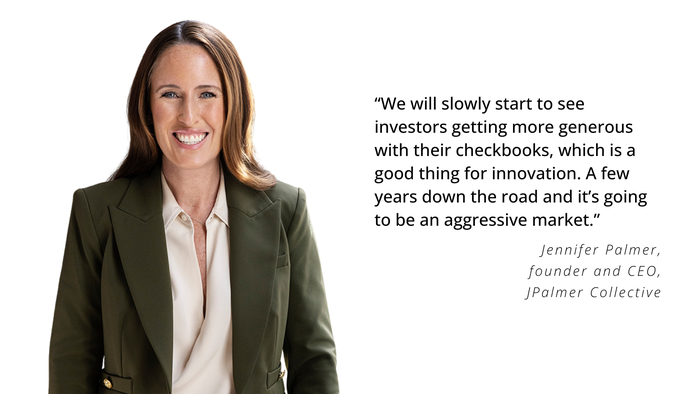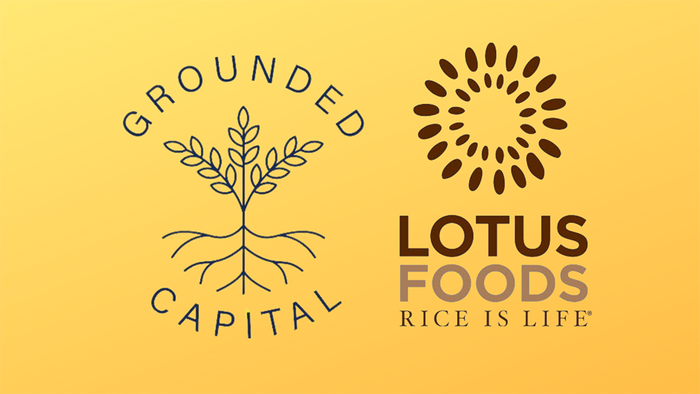Investors seek business fundamentals in innovative natural products brandsInvestors seek business fundamentals in innovative natural products brands
Investors began exercising more caution in the natural and organic products industry in 2022. Dampened investment has led to boosted focus on fundamentals—and a path forward.

At a Glance
- Natural products investors now focus on business fundamentals: customer growth, profitability and direct-to-consumer sales.
- The $22.5M investment in Lotus Foods highlights the value of mission-aligned growth in regenerative agriculture.
For close to a decade, “growth, growth, growth” served as the mantra tantalizing investors in the natural and organic products industry. Brands proliferated, based in many cases entirely on borrowed capital from investors gunning for rapid expansion.
But then 2022 arrived. Money became expensive, thanks to ballooning interest rates. Investors held onto their cash. And many brands propped up by equity and debt, rather than profits, ran out of financial resources.
Businesses shrank and foundered. Plenty of them crashed.
In retrospect, investors say, perhaps a better mantra would have been “fortify, fortify, fortify.” Instead of taking money to stoke frenetic scaling and widespread distribution, companies in the natural and organic products industry would have been better served by strengthening business fundamentals.
“Hone your formula. Build your customer audience. Listen to customers. Sell direct-to-consumer. Sell natural channels. Iterate, iterate, iterate and build your community,” said Kathryn Peters, head of industry relations at SPINS. “When you get it right and innovation is spot on you can demonstrate smart growth. You stay away from getting over your shoes in terms of manufacturing capacity. You are building a solid foundation, which not only allows you to grow with more retailers, but investors also see smart, profitable growth and they know what they are investing in.”
Not enough businesses in the industry hewed to this trajectory in the relatively recent past. But now, she said, more and more companies today are pivoting.
“We’re seeing a return to a decade ago,” she said. “Instead of launching a product and seeing how fast you can get into Target, the way to build a brand is to do it right.”

Forging ahead
News emerging from the investment side of the natural and organic products industry has been sour for the past two years. But even as capital raises and mergers and acquisitions have diminished, sweet deals still take place every day. Along the way, companies continually launch innovative new products that land on retailers’ shelves and Instagram accounts.
The effervescent days of just a few years ago may have gone flat. But for many industry players, that’s probably a good thing.
“It’s not a tough environment in general right now, in terms of the overall economy. Lots of good news,” said Liz Myslik, managing partner at investment firm Loft Growth Partners. “But starting a business is hard and scary and what we are seeing now puts a finer point on entrepreneurs doing their homework and working hard to make sure their business has a right to exist and to win in the marketplace. We continue to see exciting brands launching.”
When Myslik and her team at Loft Growth Partners review potential investments now, velocity and margin “are all that we talk about,” she said. Brands must prove that they can sell more each week, and that they can make money on the business. If brands can’t make money, she said, they probably don’t belong in business.
But for the past decade, she said, far too many companies forged ahead, thanks to investor largesse, without understanding how they would become profitable. The open wallet policy stung investors, when the companies closed their doors. But the cash flood also wasn’t fair to investors, she said.
“Investors have portfolios. But for entrepreneurs, this is their life,” she said. “The best thing an entrepreneur can do today is from day one build your business to last, one that makes money from day one. If you can do that you have a lot of choices and options down the road. Seasoned investors have always looked for that.”
In Nutrition Capital Network’s Mid-Year Report, Vern Christensen, managing director with Partnership Capital Growth, compared today’s market to those in the mid-1980s, the early '90s, the 2000s and from 2007-2009.
“Good deals get done more easily than storied deals,” he said. “Sound management and products can get different levels of financing. Markets will turn, they always do.”

Lotus Foods deal inspires industry
One company that triumphed during the recent investment slowdown is Lotus Foods, a global leader in regenerative rice cultivation and rice noodles. This year, investment firm Grounded Capital made one of the more significant moves in the industry, when it directed $22.5 million to Lotus Foods.
The investment is “transformational” to Lotus Foods, said Andrew Burke, Lotus Foods CEO, who championed Grounded Capital as a “mission-aligned partner committed to supporting regenerative agriculture over the long term.”
“It will really accelerate Lotus Foods’ growth and positive impact by deepening investments along its value chain, from sourcing to new global rice cultivation to growing and diversifying its customer and consumer base,” said Burke.
David Guendelman, founder of Do Good CFO, said the investment speaks to Lotus Foods’ historic commitment to its business goals.
“The lesson for other brands in the natural and organics industry is that to build a sustainable business that stands the test of time you need to focus on building a profitable and cash-flow-positive business, rather than growing the top line while burning a lot of cash,” he said. “Lotus was very careful over the years to raise as little money as possible and to only take money from investors with aligned values. So in that sense, while Lotus received the investment now, nearly 30 years went into making Lotus an `overnight’ success story.”
Innovation or renovation?
The Lotus Foods investment made a splash within the industry’s investor community, said Jennifer Palmer, founder and CEO of JPalmer Collective, an asset-based lending firm. It didn’t surprise people, she said, as much as it supported what investors were feeling—that big deals still happen with brands that are doing the right things.
When companies raise capital today, she said, it’s “often because investors are comfortable with taking the company forward, and there is profit or a path to profitability.”
Innovation? It matters. But it’s also expensive, she said. Consumers like seeing it in stores, and the overall industry appreciates encountering it at trade shows. But investors today are less focused on innovation.
“Losses are not tolerated the way they were up to 2022,” she said. “So innovation must be managed with capital, and capital must be managed responsibly. So when they invest their money, it will go to a product that does well on shelves.”
She added: “We will slowly start to see investors getting more generous with their checkbooks, which is a good thing for innovation. A few years down the road and it’s going to be an aggressive market. Lotus Foods was an exciting deal. It gave the industry a lot of energy.”
Nick McCoy, co-founder and managing director of investment firm Whipstitch Capital, says that as the natural and organic products industry becomes increasingly mainstream, praise for innovation for innovation’s sake is losing some of its shine. The industry already has fostered extreme innovation—keeping the pace steady might not be realistic. Today, he said, a new term—renovation—is on the rise.
He pointed toward the rise of big soda brands Poppi, OliPop and Culture Pop. Those three brands alone, he said, are probably about as big as the entire kombucha market. Their marketing advantages hinge on factors like lower calories and added nutritive ingredients like prebiotic fiber. At the same time, they also share taste profiles with traditional sodas.
“If you say to investors, ‘Is that innovating off of kombucha?’ Some would say, ‘No, it’s renovating off of soda,’” he said. “If you ask multiple people, you’ll get multiple answers. But no matter what you call it, in five or six years you have at least half a billion in revenue being generated with just three brands.”
McCoy thinks that as some of the market’s larger independent brands get scooped up in deals, then more money will flow back into the marketplace again.
“Once those start closing we’ll have big checks going to small investors,” he said. “That will bring money to the people investing in smaller brands, which will help a lot. They are starved for cash now. When some of these significant transactions unlock, it will be big.”
Competing in alt-meat category
During the tail end of the natural foods investing boom, Israeli entrepreneur Shalom Daniel launched his meat-replacement brand Mush Foods. At the time, a lot of money had been poured into meat alternatives and investors weren’t seeing returns. In fact, a balance of the negative news surrounding dampened investment in the natural and organic products industry hinged on investor dismay in the meat-alternative sector.
Attracting investors was tough—but Daniel managed to close a hefty seed round. He’s now in the midst of another raise for Mush Foods, which developed a technology that allows for mycelium—the vast network of fungi that supports the flowering of mushrooms—to grow above ground. The product isn’t designed to directly replace meat. Instead, it targets food service providers, who aim to swap some meat in products like burgers or casseroles with healthy alternatives. Mush essentially extends meat, turning one pound of meat into two pounds of product.
Part of the company’s value proposition revolves around its rejection of trying to compete in the pure alternative meat category. Daniel said that sliver—products like alternative chicken nuggets, meatballs, cold cuts, burgers and sausages—represents just one percent of overall meat sales. But Mushy plays within the much broader traditional meat marketplace.
“We had a strict business plan,” Daniel said. “We understood our burn and run rates, met our KPIs. We did it faster than we thought, and we are looking to close this next fundraising round soon.”
Daniel said the alternative meat market’s big boost, followed by a steep decline, tracks a familiar pattern in other industries. In the realm of electric vehicles, for example, investors poured money into companies for years, without realizing payouts. But the early leaders cleared paths for successors that thrive today.
“This is exactly what foodtech 2.0 companies will do. They will pursue different business models that will bring the products to the masses,” he said. “Maybe there’s fewer investors now, but I think the good ones succeeded and are still here. And some are announcing new and bigger funds. They are ready to grow the next companies into unicorns.”
Correction: The name of David Guendelman's company, Do Good CFO, was incorrect when this article was published. It was corrected on Sept. 16, 2024.
About the Author
You May Also Like





